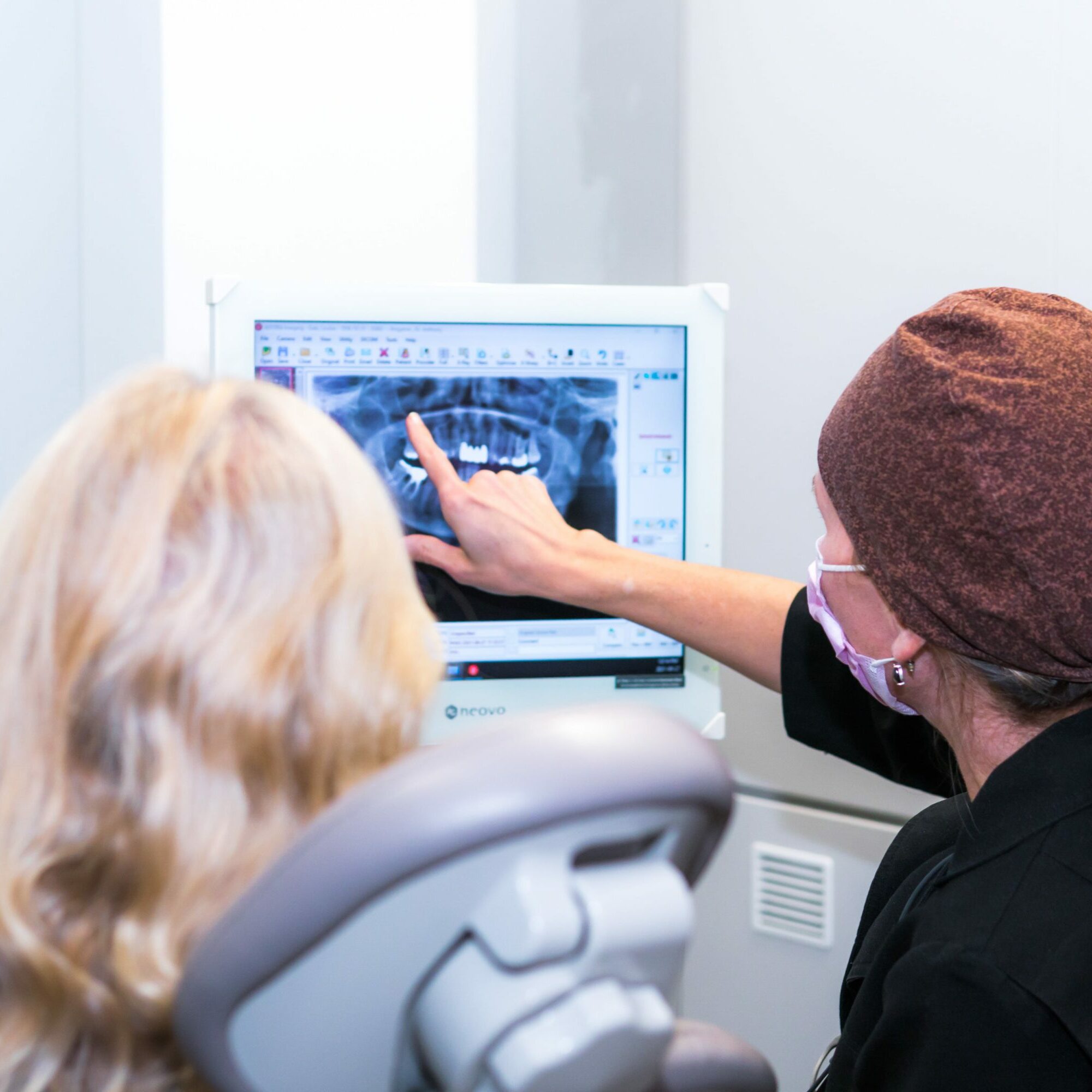If you’ve lost bone tissue due to injury or gum disease, modern dentistry is able to repair and regenerate your jawline.
Healthy bone is essential to support your teeth, and without teeth in place bone is often resorbed by the body—they need each other to stay strong. Fortunately, Oceana Dental has years of expertise in restoring bone tissue to healthy levels.
Reach out to us to talk about bone loss and your health.

Why would I need to restore bone tissue?
A bone graft or other bone regeneration procedures might be recommended by your dentist to support a dental implant, or to aid in restoration after an accident.
Some people experience dental bone loss as they age due to ongoing gum disease (periodontitis). If the jaw bone were affected in these cases, treatment would also restore the look of the face.
Other issues related to jaw bone loss include:
- Soreness or sensitivity.
- Loss of gum tissue.
- Chewing or speaking difficulties.
- Damage to healthy areas of the jaw when overcompensating to avoid using areas with bone loss.
What are bone grafts?
Bone grafts, in general, are a transplant of bone tissue. The graft material is placed in an area where bone has been lost, and after a few months the body replaces and grows around it. Grafting is a time-proven process, and has been practiced in medicine successfully since the 1600s.
The donor material can be bone from a human or animal donor, a synthetic material, or it can come from your own body. Typically we use donated material, as that means that there is only one site for your body to heal, and it doesn’t impact the success of the procedure.
Is donated bone safe?
If you use donor material, there is no risk of “rejection” in the traditional sense, as the material is nonliving—it’s simply a mineral structure.
Donor tissue, whether it comes from a human source or an animal source, is laboratory-processed and stored in a tissue bank. As you can imagine, infection control processes at these facilities are very rigorous.
What about success factors?
Bone grafts have extremely high success rates. For most people, the key variable in the outcome is how much bone your body creates in response to the graft. This will depend on your overall health and lifestyle factors (smoking in particular holds back the healing process), your age, and genetic factors.
By far the most frequent cause of problems with modern bone grafts is inadequate care of the site after the surgery. It’s essential that you follow your dentist’s instructions to avoid infection and failure of the graft.